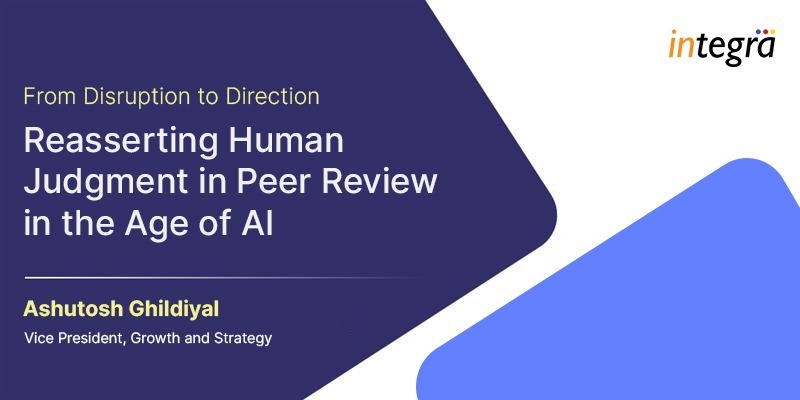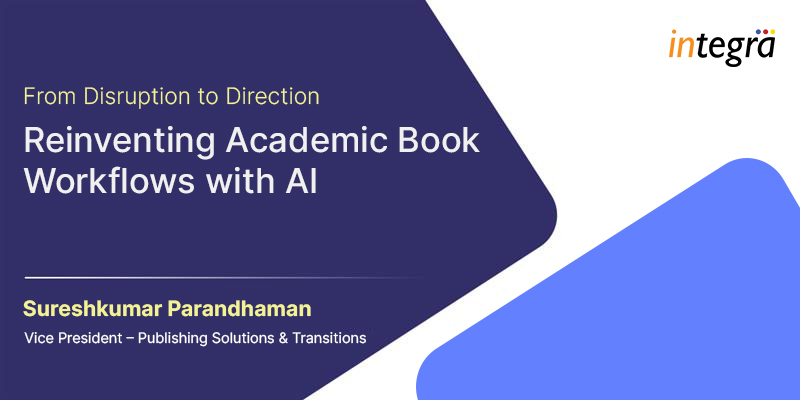Augmented Learning: Enhancing Education through Artificial Intelligence

Education is on the brink of a transformation toward a skills-first approach by 2030. The Research and Markets Global Artificial Intelligence (AI) in Education report sheds light on the use of advanced technologies driving this shift. With a projected compound annual growth rate (CAGR) of 36.6% between 2022 and 2030, the global market for AI in education is expected to reach $47.7 billion. Leveraging the potential of AI and learning analytics will play a crucial role in fostering innovation in instruction and content delivery, fueling the rise of the emerging paradigm referred to as ‘Augmented Learning.’
Augmented learning in education has expanded its scope beyond the use of experiential technologies like augmented reality and virtual reality. Initially seen as a supplement to traditional educational resources, this approach faced cost and scalability challenges.
In the new paradigm augmented learning refers to the integration of AI, data analytics, and other advanced technologies to transform both teaching and learning. By leveraging intelligent algorithms and ML, extensive student data, including performance, engagement, and preferences AI systems generate personalized learning pathways, adaptive content, and interactive experiences tailored to each student’s needs. This redefined augmented learning becomes the key to future-proofing digital education, fostering innovation in instruction and content creation.
In this article we will explore how AI-powered learning pathways redefine and enhance education, driving improved learning outcomes.
AI-Powered Augmented Learning
Digital pedagogy enables educators to design digital learning environments that supplement classroom instruction while catering to the unique requirements and preferences of individual students. Integrating AI and digital pedagogy opens exciting possibilities for a wide range of teaching and learning practices in education. Numerous opportunities to incorporate AI into digital pedagogy are emerging, and within this article, we will explore a few interesting possibilities of AI-powered augmented learning in education.
Voice-based Conversational AI as a Learning Companion
Incorporating voice-based conversational AI technology has immense potential in education. Learners can interact with an AI-powered virtual learning companion through speech, enabling natural and personalized conversations. The AI tutor understands queries, provides explanations, and offers multiple learning pathways.
An intriguing aspect involves creating voice profiles that emulate slightly older or peer group mentors, enhancing natural interaction through emotional resonance, nonverbal cues, and subtext. This approach fosters a deeper connection, empowering even reserved students. Widespread use of personal mobile devices makes this implementation feasible across various operating systems and devices, given the popularity of voice assistants like Alexa, Siri, and Google Assistant.
Guided Discoveries with Text-based Generative AIs like ChatGPT and Bard
In the ever-evolving landscape of education, guided learning has emerged as a powerful tool, enhanced by applications similar to generative AIs like ChatGPT and Bard. Text-based conversations provide a unique and personalized learning experience for students, fostering their intellectual growth through intelligent prompts and encouraging critical thinking. With the ability to adapt to different conversational styles, these applications encourage active participation and self-discovery.
Learners can ask questions, seek clarification, and delve deeper into concepts, creating a symbiotic relationship between technology and education. Through guidance, explanations, and relevant resources, text-based AIs enable students to explore various subjects at their own pace in an interactive and immersive learning environment. Guided learning through text-based bots revolutionizes conventional learning methods, empowering students to become proactive learners and nurturing curiosity.
Leveraging Learning Analytics to Enable Subject Mastery
By harnessing the power of learning analytics, educators can foster subject mastery. By analyzing content performance, student progress, areas for improvement, and in-demand skills, learning analytics provides valuable insights. Leveraging AI-based assessment generators, diagnostic and prescriptive analytics reveal individual learning gaps and recommend necessary reinforcements for student success.
Predictive intelligence and AI-powered learning pathways enable educators to deliver personalized and targeted interventions that align with each learner’s capabilities and unique needs. Through this approach, students are empowered to excel in subject mastery, supported by tailored guidance and adaptive learning experiences.
Reimagining Education for the Future with AI-Powered Augmented Learning
In the ever-changing landscape of education, AI-powered augmented learning emerges as the cornerstone for future-proofing digital education. By embracing AI-powered digital pedagogy and exploring voice-based conversational AI and text-based generative AIs, we unlock new avenues for engaging, immersive, and personalized learning experiences.
In the pursuit of enhanced learning outcomes and skill development, AI-powered augmented learning takes the lead in transforming education. Embracing its potential equips learners with the necessary tools to thrive in a dynamically evolving world, securing education’s influential role in shaping the future.
At Integra, we help education and learning services providers experiment and innovate within their space by providing the much-needed bandwidth through our digital content development and AI/ML solutions. Our team of experts can help you design innovative and impactful learning interventions for your learners, including augmented learning services in education. Contact us today to learn more about how we can support you with this transformation!
Recent Blogs

From Disruption to Direction: Reasserting Human Judgment in Peer Review in the Age of AI

Research Integrity vs. Publication Integrity: Clarifying Responsibility in Scholarly Publishing


